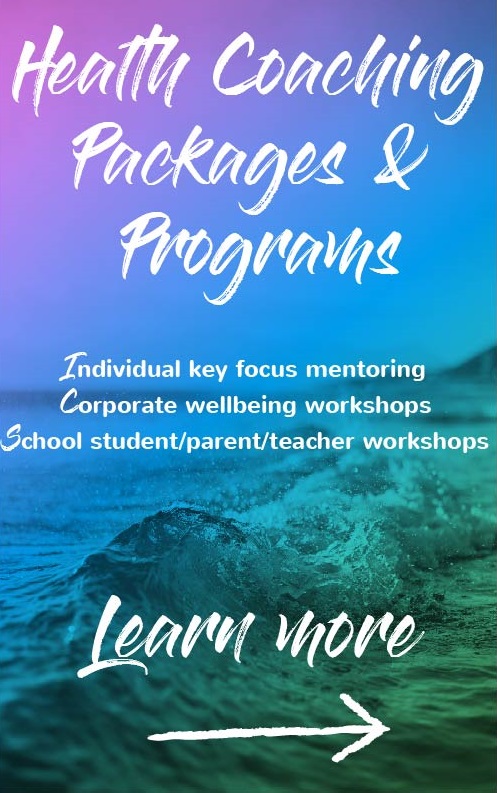
It’s so common we to feel frustrated at the lack of progress in efforts towards improving health. We gravitate towards other sources to blame instead of looking in the mirror honestly and understanding where it begins.
It may only be simple daily mistakes (and let’s face it no-one is perfect) but it’s what the norm or majority of what we do that makes the difference. One splurge on a piece of chocolate or pastry isn’t going to send the world tumbling but if it happens every day then this is where it begins.
Our bodies crave balance if there is too much exercise and not enough sleep our system retaliates and shuts down our fat burning hormones making it near impossible to shed weight. The same goes with nutrition. As we age, we require to shift our eating habits so taking the time to recognise this with strategies is helpful.
6 No Brainer Ways to Stop Overeating (and reset your appetite)
Stop stressing over fat
In the past, we were told to avoid the fat content of foods at all costs. These days it’s completely the opposite. Of course, still steering away from takeaways, processed foods with unhealthy saturated fats but instead filling up on nuts, seeds, hemp seeds, avocados, coconut oil and salmon. Healthy fats assist the absorption of other important nutrients and I firmly believe that they help limit snacking while supporting blood sugar levels. It’s a hard nut to crack especially if you’re surfacing from the 80’s/90’s low-fat era but totally worth the change.
Too much monotonous cardio
Yep, I’ve heard it before – long miles at a steady rate burn more calories than doing the same distance fast…not entirely true. If you do the same walk every day, your fitness stabilises as you’re not challenging yourself with potential of a weight plateau occurring. Overdoing miles ramp cortisol levels, leaving us ravenously hungry while sending signals to the body to cling onto stored body fat as a survival mechanism.
Once you’ve begun a fitness routine it’s important to keep raising the bar (with recovery sessions) by swapping things around (cross training) and avoiding rigidity to see improvements. Many studies show that high-intensity training (HIIT) (short bursts of power) increase the fat burning potential of muscle, improve the efficiency with which the body burns fat, and is a time efficient way of burning stored energy!
Too much of a good thing
Fresh and dried fruit has its place in your diet but too much and it simply leads to a sugar overload.
Choose low GI fruits like berries, apples, melons and pears which will still provide great antioxidants without insulin levels bouncing. Fruit can also further feed yeast overgrowth (candida) which often leads to bloating, tiredness, a foggy brain so that also may be something you may like to investigate further yourself.
Mindful eating
This style of eating is not diet related, and can help with emotional eaters immensely. This method helps to come back to ourselves and say: ‘Does my body need this? Why am I eating this? Is it just because I’m so sad and stressed out?’ ”
When we’re on automatic pilot we become more efficient but it also means we miss things. Sometimes we need to consciously come out of automatic pilot and choose to focus – and this is with anything in life. When we get it right our digestions improved due to the mind/gut connection with the production of digestive enzymes plus we eat less, and relax more. 6 ways to eat mindfully
There no break from refined grains
A lot of the wrong carbohydrates can rob us of energy. Think of a wavelength – a nice steady one without any spikes and downturns – this is how we should try to maintain our energy levels. Refined grains such as white bread, pasta and white rice lead to spikes and downers (carb coma anyone?) plus they crowd out more-nutritious foods. Choose whole grains and legumes instead.
Diet foods don’t help
Even though diet foods (soft drinks) might show up as reduced calories, the acids and chemicals used in diet products still spike insulin levels and send our bodies into an overeating frenzy. Fat-free or no sugar products can lead to developing a taste for sweet or rich foods instead of just omitting them from your diet.
By developing a taste for natural unprocessed foods, you will be your own judge on the correct choices to eat. No longer will processed, fatty and sweet foods taste good but cravings will be a thing of the past. Of course, you must you must be willing to direct energy to make changes. Small steps lead to big results.
It may seem easy to believe that energy in = energy out but studies show that other influences such as medication use, environmental pollutants, genetics, the timing of food intake, stress, gut bacteria, and even night-time light exposure can play a part in weight gain.




